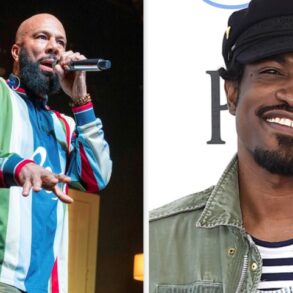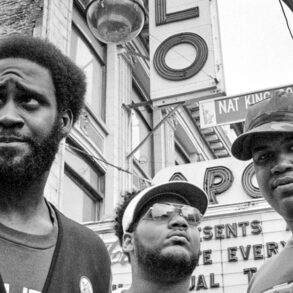Rap music has evolved into one of the most influential genres in the music industry, offering a powerful platform for artists to express their thoughts, stories, and social commentary. Over the years, numerous rap songs have left an indelible mark on the culture, transcending boundaries and shaping the soundscape of generations. From the gritty, raw verses of the genre’s pioneers to the polished, innovative productions of contemporary artists, rap has continually pushed the envelope of musical creativity. The top rap songs of all time are not just about catchy beats and clever lyrics; they reflect the struggles, triumphs, and diverse experiences of their creators. These tracks have become anthems for movements, soundtracks to lives, and blueprints for aspiring rappers. In this article, we delve into the top 15 best rap songs of all time, celebrating the iconic tracks that have defined the genre and influenced countless artists. From the groundbreaking work of legends like Tupac Shakur and The Notorious B.I.G. to the modern masterpieces of Kendrick Lamar and Drake, these songs represent the pinnacle of rap artistry. Join us as we explore the timeless classics and contemporary hits that continue to resonate with fans worldwide.
1. Mind Playing Tricks On Me by Geto Boys
“Mind Playing Tricks on Me” by the Geto Boys is often hailed as one of the greatest rap songs of all time. Released in 1991, the track delves into themes of paranoia, mental health struggles, and the harsh realities of street life, setting it apart from many of its contemporaries. Scarface, Willie D, and Bushwick Bill each deliver poignant verses that paint vivid, introspective portraits of their inner turmoil. The haunting, soul-infused beat, which samples Isaac Hayes’ “Hung Up on My Baby,” adds to the song’s eerie atmosphere and emotional depth.
Scarface’s opening verse captures the sense of relentless anxiety and fear that pervades the song, while Willie D’s verse reflects on the psychological toll of a violent lifestyle. Bushwick Bill’s closing verse, which describes a disturbing hallucination, is particularly memorable and underscores the song’s exploration of mental fragility. “Mind Playing Tricks on Me” resonated with listeners for its raw honesty and its departure from the glorification of violence often found in rap. It remains a powerful, influential track that continues to be celebrated for its lyrical complexity and its unflinching look at the darker aspects of human experience.
2. Juicy by Notorious B.I.G
“Juicy” by The Notorious B.I.G., released in 1994, is a quintessential rap anthem that celebrates the rags-to-riches journey of one of hip-hop’s greatest legends. The song serves as Biggie’s autobiographical recount of his rise from poverty to fame, providing an inspirational narrative that resonates deeply with many listeners. Produced by Sean “Puffy” Combs and Poke of Trackmasters, the track samples Mtume’s “Juicy Fruit,” creating a smooth, nostalgic backdrop that complements Biggie’s laid-back yet confident delivery.
In “Juicy,” Biggie chronicles his early life struggles, from living in squalid conditions to hustling on the streets, juxtaposed against his eventual success and the luxuries it afforded him. Lines like “It was all a dream, I used to read Word Up! magazine” and “Now I’m in the limelight ’cause I rhyme tight” highlight his journey from dreamer to superstar. The song is notable for its uplifting and celebratory tone, making it a standout in a genre often dominated by themes of hardship and aggression.
“Juicy” is not only a personal victory lap for Biggie but also a testament to the transformative power of hip-hop. Its universal themes of perseverance and triumph continue to inspire new generations of listeners, cementing its status as one of the greatest rap songs of all time.
3. Straight Outta Compton by N.W.A.
“Straight Outta Compton” by N.W.A., released in 1988, is a landmark rap song that thrusts listeners into the gritty realities of Compton, California. The track, which serves as the title song of their debut album, is a raw and unapologetic portrayal of life in the inner city, addressing issues such as police brutality, gang violence, and racial profiling. Produced by Dr. Dre and featuring powerful verses from Ice Cube, MC Ren, and Eazy-E, the song captures the intense energy and rebellious spirit of the group.
With its aggressive beat and bold lyrics, “Straight Outta Compton” became an anthem for the disenfranchised youth of the late 1980s, challenging social norms and sparking controversy for its unabashed critique of authority. The iconic opening line, “You are now about to witness the strength of street knowledge,” sets the tone for the rest of the track, which doesn’t hold back in its depiction of life in Compton’s tough streets.
Beyond its musical impact, “Straight Outta Compton” is credited with shaping the gangsta rap genre and influencing countless artists who followed. Its confrontational style and unflinching honesty continue to resonate with listeners today, solidifying its place as one of the most important and influential rap songs of all time.
4. The World Is Yours by Nas
“The World Is Yours” by Nas, released in 1994, is a seminal rap song that showcases Nas’ lyrical prowess and introspective storytelling. Featured on his debut album “Illmatic,” the track is produced by Pete Rock and incorporates a soulful sample from Ahmad Jamal’s “I Love Music,” creating a melodic backdrop that complements Nas’ smooth delivery.
In “The World Is Yours,” Nas reflects on the challenges and aspirations of growing up in Queensbridge, New York, while emphasizing the importance of seizing opportunities and overcoming obstacles. His intricate rhyme schemes and vivid imagery paint a vivid picture of inner-city life, capturing both the harsh realities and the potential for personal triumph.
The song’s chorus, “Whose world is this? The world is yours, the world is yours,” serves as a powerful mantra of empowerment and ambition, encouraging listeners to pursue their dreams despite adversity. Nas’ reflective verses, which touch on themes of ambition, perseverance, and the quest for success, resonate deeply with audiences, making “The World Is Yours” a timeless anthem of hope and determination in the rap genre.
Critically acclaimed and widely regarded as one of the greatest rap songs of all time, “The World Is Yours” solidifies Nas’ place as a visionary storyteller and a lyrical mastermind within hip-hop culture.
5. Dear Mama by 2pac
“Dear Mama” by 2Pac, released in 1995, stands as a heartfelt tribute to the influential women in the rapper’s life, particularly his mother, Afeni Shakur. The song, featured on his album “Me Against the World,” showcases 2Pac’s emotional depth and introspective storytelling. Produced by Tony Pizarro, the track blends a soulful sample from Joe Sample’s “In All My Wildest Dreams” with 2Pac’s poignant lyrics.
In “Dear Mama,” 2Pac expresses deep gratitude and admiration for his mother, reflecting on her strength, sacrifices, and unwavering love despite facing hardships. He candidly recounts their struggles with poverty and personal challenges, illustrating the profound impact his mother had on shaping his character and resilience. The song’s chorus, “You are appreciated,” resonates as a universal acknowledgment of maternal love and support.
Beyond its personal narrative, “Dear Mama” resonated widely for its authenticity and vulnerability, addressing themes of familial bonds and social injustice. It became a critical and commercial success, earning praise for 2Pac’s sincere delivery and the song’s emotional resonance. It remains a cornerstone of 2Pac’s legacy, celebrated for its raw honesty and its portrayal of the complexities of mother-son relationships in the face of adversity.
“Dear Mama” continues to be regarded as one of the greatest rap songs of all time, not only for its musical impact but also for its profound exploration of love, gratitude, and resilience within the context of 2Pac’s tumultuous life.
6. Rapper’s Delight by The Sugarhill Gang
“Rapper’s Delight” by The Sugarhill Gang, released in 1979, is a pioneering rap song that played a crucial role in introducing hip-hop to mainstream audiences. Produced by Sylvia Robinson and featuring the charismatic performances of Big Bank Hank, Wonder Mike, and Master Gee, the track is renowned for its catchy beat and playful, rhythmic flow.
At over 14 minutes long, “Rapper’s Delight” is notable for its extended verses filled with humorous rhymes and boastful lyrics, setting the tone for early rap music. The song’s infectious chorus, “I said a hip hop, the hippie to the hippie, the hip hip hop, and you don’t stop,” became an iconic refrain that defined the era’s emerging hip-hop culture.
“Rapper’s Delight” was groundbreaking in its fusion of funk and rap elements, sampling Chic’s “Good Times” to create a lively and danceable groove. It quickly became a commercial success, reaching the top 40 on the Billboard Hot 100 and paving the way for subsequent rap hits.
As the first rap song to achieve mainstream popularity, “Rapper’s Delight” holds a significant place in music history, influencing generations of artists and serving as a cultural milestone for the hip-hop genre. Its playful spirit and infectious energy continue to captivate listeners, making it a timeless classic and a foundational piece of rap music’s evolution.
7. Sucker MC’s by Run-D.M.C
“Sucker MC’s” by Run-D.M.C., released in 1983, is a seminal rap track that helped define the genre’s early sound and style. As one of the group’s earliest singles, it showcases their minimalist approach to production and their distinctive blend of aggressive yet rhythmic vocal delivery.
Produced by Larry Smith and Russell Simmons, “Sucker MC’s” features Run-D.M.C.’s signature stripped-down beats and sharp lyrics, focusing on their lyrical prowess and dismissing lesser MCs who fail to measure up. The track’s sparse instrumentation allows the group’s bold, confident vocals to take center stage, emphasizing their innovative approach to rap music.
With its repetitive drum machine beats and powerful vocal delivery, “Sucker MC’s” embodies the essence of old-school hip-hop, showcasing Run-D.M.C.’s influence on shaping the genre’s early years. The song’s direct, confrontational lyrics and energetic performance established Run-D.M.C. as trailblazers in rap music, setting a precedent for future generations of artists.
“Sucker MC’s” remains a classic in rap music history, celebrated for its raw energy, lyrical prowess, and its role in solidifying Run-D.M.C.’s status as pioneers of hip-hop culture. Its impact continues to resonate within the genre, making it a foundational track for understanding the evolution of rap music.
8. The Message by Grandmaster Flash and the Furious Five
“The Message” by Grandmaster Flash and the Furious Five, released in 1982, is a seminal rap song that revolutionized the genre with its socially conscious lyrics and gritty portrayal of urban life. Produced by Sylvia Robinson and featuring vocals from Melle Mel and Duke Bootee, the track stands out for its narrative style and poignant commentary on inner-city struggles.
“The Message” breaks away from the party-centric themes typical of early hip-hop, instead addressing issues such as poverty, crime, and social inequality. Melle Mel’s powerful delivery and vivid storytelling depict the harsh realities faced by marginalized communities, offering a stark contrast to the escapism prevalent in mainstream music at the time.
With its iconic chorus, “Don’t push me ’cause I’m close to the edge, I’m trying not to lose my head,” the song captures the frustration and desperation felt by those living in impoverished neighborhoods. Its innovative use of sampling and urban storytelling set a new standard for rap music, earning critical acclaim and commercial success.
“The Message” remains a landmark in hip-hop history, recognized for its lyrical depth, social commentary, and influence on subsequent generations of artists. It continues to resonate as a powerful testament to the transformative potential of rap music in addressing societal issues and giving voice to the voiceless.
9. Lose Yourself by Eminem
“Lose Yourself” by Eminem, released in 2002 as part of the soundtrack for the film “8 Mile,” is a powerhouse rap song that encapsulates the determination and perseverance needed to seize opportunities in the face of adversity. Produced by Eminem and Jeff Bass, the track’s intense beat and Eminem’s rapid-fire delivery underscore its motivational theme.
The song’s lyrics reflect Eminem’s own struggles and aspirations, drawing parallels between his personal journey and that of the film’s protagonist. With lines like “You only get one shot, do not miss your chance to blow, this opportunity comes once in a lifetime,” Eminem conveys a sense of urgency and the importance of seizing pivotal moments.
“Lose Yourself” became a massive commercial success, topping charts worldwide and winning numerous awards, including the Academy Award for Best Original Song. Its anthemic chorus and Eminem’s impassioned verses resonated with audiences, making it a defining track in his career and in rap music as a whole.
Beyond its commercial success, “Lose Yourself” is celebrated for its motivational message and its ability to inspire listeners to pursue their dreams despite obstacles. It remains one of Eminem’s most iconic songs, recognized for its powerful lyrics, dynamic production, and enduring impact on popular culture.
10. Fight The Power by Public Enemy
“Fight the Power” by Public Enemy, released in 1989, is a politically charged rap anthem that remains a potent symbol of resistance and social activism. Produced by members of the group alongside Hank Shocklee, the song is characterized by its energetic beat, aggressive delivery, and confrontational lyrics.
Public Enemy’s frontman, Chuck D, delivers impassioned verses that critique systemic racism, oppression, and social injustice. The song’s chorus, “Fight the power!,” became a rallying cry for marginalized communities and activists striving for change. Its powerful message is amplified by the inclusion of samples from prominent figures like Malcolm X and musical elements that evoke a sense of urgency and defiance.
“Fight the Power” gained widespread attention for its unapologetic critique of authority and its call to challenge the status quo. It was prominently featured in Spike Lee’s film “Do the Right Thing,” where it became synonymous with the film’s themes of racial tension and social unrest.
As a cultural touchstone, “Fight the Power” continues to resonate as a seminal work in rap music, influencing subsequent generations of artists and activists. Its enduring relevance underscores its role in igniting dialogue about race, power dynamics, and the ongoing struggle for equality.
11. Nuthin’ But A ‘G’ Thang by Dr. Dre
“Nuthin’ But a ‘G’ Thang” by Dr. Dre, featuring Snoop Doggy Dogg, is a classic rap track that epitomizes the G-funk era of the early 1990s. Released in 1992 as the lead single from Dr. Dre’s debut solo album, “The Chronic,” the song became an instant hit and a defining moment in West Coast hip-hop.
Produced by Dr. Dre, the track features a laid-back, funk-infused beat that samples Leon Haywood’s “I Want’a Do Something Freaky to You.” This smooth production, combined with Dre’s polished delivery and Snoop’s charismatic flow, created an irresistible groove that resonated with a wide audience.
Lyrically, “Nuthin’ But a ‘G’ Thang” celebrates the carefree lifestyle of West Coast rappers, with verses that highlight their confidence, camaraderie, and street credibility. Snoop Doggy Dogg’s memorable opening line, “One, two, three and to the four, Snoop Doggy Dogg and Dr. Dre is at the door,” instantly grabs the listener’s attention and sets the tone for the rest of the song.
The track’s success helped to cement Dr. Dre’s reputation as a pioneering producer and introduced Snoop Doggy Dogg as a rising star in the hip-hop world. “Nuthin’ But a ‘G’ Thang” not only topped the charts but also influenced the sound and style of rap music for years to come.
Celebrated for its smooth production, catchy lyrics, and cultural impact, “Nuthin’ But a ‘G’ Thang” remains one of the greatest rap songs of all time, encapsulating the essence of 1990s West Coast hip-hop and the enduring appeal of the G-funk genre.
12. In Da Club by 50 Cent
“In Da Club” by 50 Cent, released in 2003, is a high-energy rap song that became a massive commercial success and a cultural phenomenon. Produced by Dr. Dre and Mike Elizondo, the track’s infectious beat and catchy hook made it an instant club and radio favorite.
The song’s upbeat tempo and 50 Cent’s confident delivery exude a sense of celebration and hedonism, reflecting the artist’s newfound success and lavish lifestyle. Lines like “Go, shawty, it’s your birthday” and “We gon’ party like it’s your birthday” became anthemic, inviting listeners to join in the festivities.
“In Da Club” dominated the charts upon its release, reaching number one on the Billboard Hot 100 and achieving global acclaim. Its success catapulted 50 Cent to mainstream stardom and solidified his reputation as one of the leading figures in rap music at the time.
Beyond its commercial achievements, “In Da Club” is celebrated for its infectious energy, memorable lyrics, and timeless appeal. It remains a staple in pop culture and continues to be played at parties, clubs, and sporting events worldwide, showcasing its enduring impact and lasting legacy in the rap genre.
13. Keep Ya Head Up by 2pac
“Keep Ya Head Up” by 2Pac, released in 1993, is a poignant and empowering rap song that addresses issues of misogyny, single motherhood, and resilience in the face of adversity. Featured on his second studio album, “Strictly 4 My N.I.G.G.A.Z…,” the track is notable for its compassionate lyrics and uplifting message.
Produced by DJ Daryl and sampled from Zapp’s “Be Alright” and The Five Stairsteps’ “O-o-h Child,” the song’s smooth, soulful beat provides a fitting backdrop for 2Pac’s heartfelt verses. In “Keep Ya Head Up,” 2Pac speaks directly to women, particularly those struggling in difficult circumstances, offering words of support and encouragement. His lyrics, “I know they
14. Ms. Jackson by Outkast
“Ms. Jackson” by OutKast, released in 2000, is a standout track from their critically acclaimed album “Stankonia.” The song, which became a massive hit, is notable for its introspective lyrics, catchy melody, and the unique blend of hip-hop and funk that characterizes OutKast’s music.
Produced by Earthtone III, the production team consisting of André 3000, Big Boi, and Mr. DJ, “Ms. Jackson” features a memorable piano riff and a smooth, soulful beat. The track’s lyrics address the complexities of relationships, specifically focusing on the struggles and regrets following a breakup. The song is a heartfelt apology to the mother of an ex-girlfriend, reflecting on the impact of failed relationships on all parties involved.
André 3000’s verse, which includes the iconic line “I’m sorry, Ms. Jackson, I am for real / Never meant to make your daughter cry / I apologize a trillion times,” conveys a sense of remorse and introspection. Big Boi’s verse complements this with his perspective on the challenges of co-parenting and maintaining dignity amidst personal turmoil.
“Ms. Jackson” received widespread acclaim for its honest and relatable lyrics, as well as its innovative production. The song topped the Billboard Hot 100, earning OutKast a Grammy Award for Best Rap Performance by a Duo or Group. Its enduring popularity and cultural impact cement “Ms. Jackson” as one of the best rap songs of all time, showcasing OutKast’s lyrical depth and musical versatility.
15. Hard Knock Life by Jay-Z
“Hard Knock Life (Ghetto Anthem)” by Jay-Z, released in 1998, is a defining rap song that samples the classic song “Hard Knock Life” from the musical “Annie.” Produced by The 45 King, the track blends hip-hop with Broadway influences, creating a unique and instantly recognizable sound.
Jay-Z’s lyrics in “Hard Knock Life” reflect on his upbringing in Brooklyn’s Marcy Projects and the challenges faced by those living in impoverished urban neighborhoods. The song’s chorus, which samples “It’s the Hard Knock Life” from “Annie,” adds a layer of irony and contrast to Jay-Z’s gritty verses, highlighting the disparity between the aspirations of the marginalized and the harsh realities they face.
The track’s infectious beat, coupled with Jay-Z’s smooth flow and clever wordplay, propelled it to commercial success, reaching the top 20 on the Billboard Hot 100. “Hard Knock Life” not only became one of Jay-Z’s signature songs but also introduced a broader audience to his lyrical prowess and storytelling ability.
Beyond its musical achievements, “Hard Knock Life” is celebrated for its cultural impact, blending elements of hip-hop with mainstream appeal. It remains a timeless anthem that resonates with listeners, addressing themes of resilience, perseverance, and the pursuit of success against all odds.
This post was originally published on this site be sure to check out more of their content.








